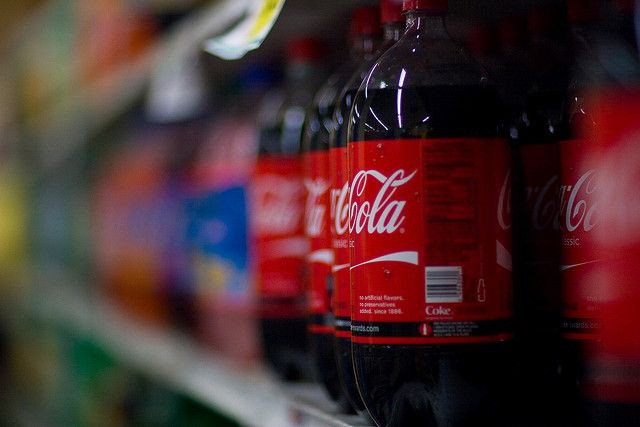Sugar-Free Candy, Sodas May Ruin Your Tooth Enamel Just As Much As Their Sugary Counterparts

While we already know cutting sugar from your diet can greatly improve your overall health, some people may see products labeled “sugar-free” as a way to drink sodas or sports drinks without the risks. Unfortunately, new research out of the University of Melbourne has found these sugar-free items can also wreak havoc on your teeth.
To prove this, professor Eric Reynolds of the University of Melbourne’s Oral Health Cooperative Research Centre and his colleagues exposed donated human molars — free of cavities — to 23 different types of drinks, including sodas like Coca-Cola and sports drinks like Gatorade. They then measured weight and surface loss to determine how much enamel was removed from the teeth, as well as calcium levels to see how their strength changed.
They found drinks with acidic additives and low pH levels could soften tooth enamel — the material that makes up most of the visible part of our teeth — by up to 50 percent. These results held even when including water with artificial flavors and sports drinks, where only two of the eight tested didn’t erode enamel. There was no significant difference between the effects of sugary and sugar-free drinks.
The main reasons behind all this enamel erosion? Citric and phosphoric acid. A natural preservative found in fruits like lemons and limes, citric acid is added to sugar-free drinks to add tanginess. But this addition, along with the presence of phosphoric acid, can spell trouble for your pearly whites. People with eroded enamel are more susceptible to bacteria, which can lead to tooth decay.
“Dental erosion occurs when acid dissolves the hard tissues of the tooth. In its early stages erosion strips away the surface layers of tooth enamel,” Reynolds said in a statement. “If it progresses to an advanced stage, it can expose the soft pulp inside the tooth.”
Sugar-free drinks aren’t the only culprits ruining your teeth, either. The researchers also looked at sugar-free candies to see how damaging they could be to your chompers. Again, they found many of these candies contained citric acid or other acids that enhanced the lemon, lime, or orange flavors. “Some of these actually claim to be tooth-friendly but consumers should be aware that their acidic ingredients make them potentially harmful to teeth,” Reynolds said.
Because giving up both sugary and sugar-free drinks can seem impossible, Reynolds offered some suggestions that would help keep enamel erosion at bay. For one, instead of drinking soda or sports drinks, drink water — it hydrates just as well and doesn’t damage teeth at all. He also suggested reducing candy consumption to a minimum and postponing toothbrushing until a while after indulging in acidic foods or drinks. The reason: many people brush far too hard and can therefore ruin their enamel, which becomes weakened from the acid.
Reynolds’ final piece of advice is one everyone should follow regardless of their sugar intake: Continue to have regular check-ups with your dentist.
Source: Reynolds, E, et al. Why those sugar-free products damage your teeth. University of Melbourne. 2015.
Published by Medicaldaily.com



























